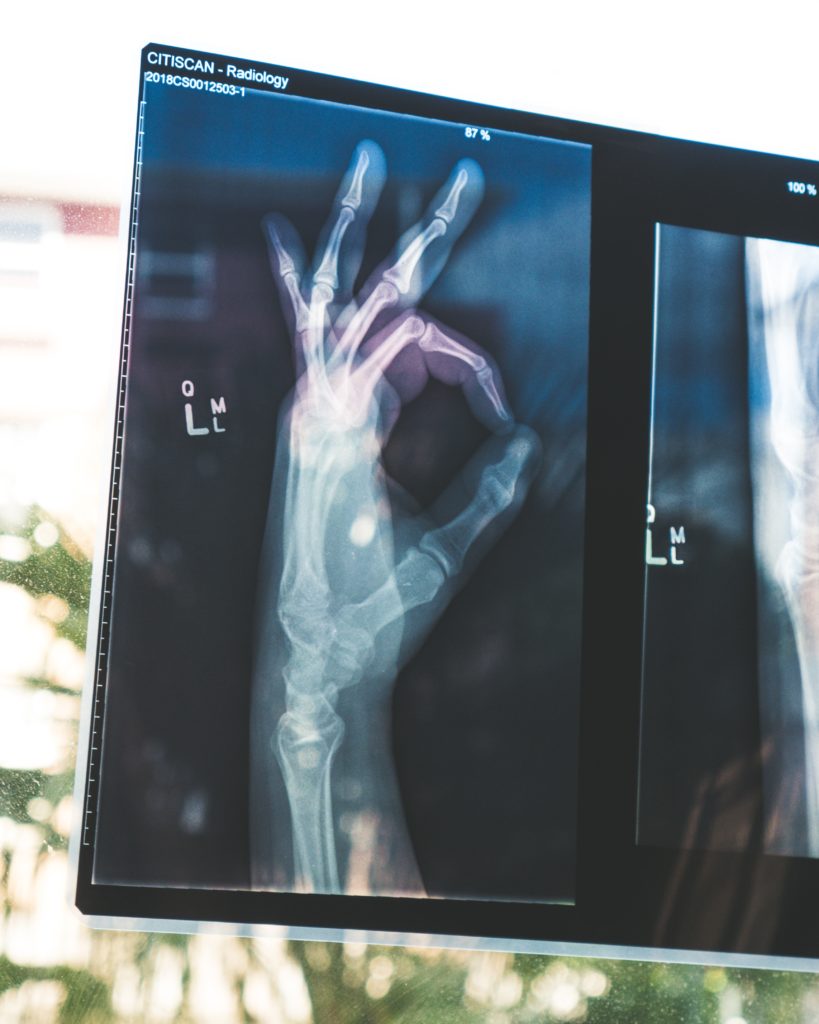AI in cancer treatment. Polish MRA’s plan for 2020
New year, new me, as they say. This also applies to Polish Medical Research Agency (MRA). This recently created Polish governmental body intends to finance AI (Artificial Intelligence), which will support diagnostics and treatment of cancer. The public competition for an adequate project of AI is supposed to be opened in May 2020. This competition for a project of AI supporting cancer diagnosis and treatment is hiding behind a very complex name disclosed by MRA in their plans for 2020 i.e. “a research and development activities in development of a model of decision-making support through the use of AI in diagnostic and therapeutic process in oncology”. Trust me, my eyes literary hurt when I read this name for the first time.

MRA’s plans for 2020.Not only AI in cancer treatment
If you read my previous posts on the Agency, you know MRA is to spend 1.5 billion of Polish Zlotys (approx. slightly above 237 million of Euros) on non-commercial medical research by 2025.
For a project to develop AI supporting cancer diagnosis and treatment, the Agency plans to spend 20 million zlotys (approx. 4 million 8 hundred thousands Euors) in total, of which 14 million PLN (approx. a bit above 3 million 3 hundred thousands EUR) is expected to be given to the winner (or winners) of this public competition opening in May 2020.
Does this plan make sense and on what exactly MRA wants to fund from Polish taxpayers’ money?

Is AI the future of cancer treatment?
Let’s start with whether the use of AI in medicine in general, and especially in cancer diagnosis and treatment makes sense. The answer is short and simple: yes, it does. Now, it is even believed AI is the future of oncology. Especially when it comes to detecting early symptoms of cancer.
Why? Well, all scientific research conducted to investigate the potential usage of AI in cancer treatment have proved so far that that AI is simply better than humans in detecting even very early signs of cancer. The software just does it much better than us.
If you don’t take my word for it, please see for example the profound analysis using AI in oncology developed by scientists from the University of Belfast.
Naturally for the time being at least, AI has its limitations. So when I write about “detecting symptoms of cancer” I mean analyzing images of a “suspicious” tissue or organs. Images taken as a result of MRT, CT or a PET-scan.

Rules of the competition for this AI project in cancer treatment
To begin with, MRA will fund the AI project supporting the “diagnostic and therapeutic process” – i.e. cancer detection and treatment – in at least 2 heath care entities (Polish laws regulate which entity can be considered as a “health care entity”). What’s more these two entities need to have a contract on providing healthcare services the National Health Fund (Narodowy Fundusz Zdrowia) for the provision of chemotherapy, radiotherapy and surgery.
As I wrote, MRA intends to allocate PLN 20 million, including PLN 14 million in 2020 to fund this project of AI.
This amount may initially seem quite a lot, but we are talking about software that is expected to analyze hundreds of thousands of very complex medical data (mostly imaging patients in search of signs of the disease).
All data on which AI will operate is of course personal data in light of the GDPR. What’s more not a regular personal data but a specially protected sensitive data as it regards pieces of information on individuals’ health.
Remember that AI must have access to all this data and process them with increased security measures. Otherwise it would be a breach of EU General Personal Data Protection Regulation (GDPR).
And we are talking here about a very large amount of data, which firstly must be in digital form, and secondly, they need to store it somewhere else.
In addition, when you read carefully through the plan of this future competition released by MRA, you will find out that there is another factor to be considered when applying for this funding. The designer or designers of this AI will provide full technical support during its testing phase at those 2 health care facilities which is to last 3 years.
If you read my prior posts on MRA then you know that the Act on Medical Research Agency (AoMRA) sets forth restrictions on who can enter their competitions. In essence: this law favors non-commercial applicants.
However when it comes to the planned rules for this competition on AI, MRA requested an applicant has “experience in developing and implementing at least one IT solution supporting diagnostic processes in at least one health care entity”. This is one of the obligatory criteria which need to be met in order to take part in the competition.

AI in cancer treatment – bonus criteria
So if you are inexperienced, then you have nothing to start. And now the question: how do you think how many Polish entities that can apply for this funding according to AoMRA have such practical experience in implementing that type of IT solution?
Practical. That is, not we have had it implemented but it was us who have had implemented it.
Exactly. Not many if any at all. Fortunately for the applicants, MRA has formulated bonus criteria for this competition.
One of them allows to submit a project “in a consortium (partnership) with at least one economic operator operating in the IT industry in the Republic of Poland and having experience in implementing IT solutions in health care entities”.
So if you don’t have experience yourself, you can always apply in partnership with an IT company that has such experience. Of course, this company can be a completely commercial, non-public entity. The important thing is you submit the project together since according to AoMRA such a commercial IT company is not allowed to do it alone.
Ok, you may think, but isn’t that a clever way to omit AoMRA restrictions on who can apply for MRA funding?
Well, the law does not prohibit partnerships with commercial entities and submitting projects for competitions together. It only states certain requirements for applicants. Which means that such a partnership does not breach any laws but merely exploits its gap. And this is not forbidden.
Finally, just to reassure you, so-called “partnership option”, is not at all a new idea in Polish reality of applying for funding from public money.

20 million PLN on AI: will it pay off ?
After having a better understanding what exactly MRA is willing to fund, one needs to ask themselves a question: will it pay off ? Especially if you are a commercial company which only plans to apply for this funding in a partnership with a non-commercial entity.
First of all it is worth assessing whether the amount of possible funding is at all enough to create any reasonable project of such a highly specialized AI.
Remember that there are various types of cancer. Each has its own, specific symptoms. Lung cancer is detected differently than let’s say one of the most insidious cancers – a liver cancer. The more difficult it is to detect certain type of a cancer is , the more complex and costly AI will have to be designed to detect it. Then there is the issue of processing sensitive personal data and applying appropriate security measures to do it in accordance with GDPR. Finally, also providing of the free of charge support during the entire 3-year-long testing period. Not mentioning that the draft of this competition rules implies that the AI software is to be shared with certain types of public, oncological facilities in Poland. Free of charge for at least 3 years. This means a royalty fee license for 3 years but the specific terms of such a licensing agreement are unknown yet.
And if you realize that these 20 million zlotys does not necessarily have to go only to one winner of this competition as there might be multiple winners according to AoMRA, then there are even more questions about the attractiveness of MRA support in practice.
How will it be, who will participate in this competition – if anyone at all – we shall see. But definitely it will be interesting.
Regards, Prawstoria




